Choosing between cremation or burial is one of those choices that most of us avoid, but it’s something that HAS TO be decided eventually. If someone close to you has recently died, and the question of how their remains will be disposed of wasn’t decided, it’s now on you.
The main factors distinguishing burial and cremation are cost, eco-friendliness, and religious or cultural concerns. While burial can be more costly, cremation produces pollution and is not generally practiced by some groups. Both can be achieved for less money and a smaller carbon footprint.
In this article, I’m going to cover some of the key arguments for and against cremation and burial, many of which you may not have thought of before. I hope that this will help you make the decision for any upcoming funeral, and possibly for your own.
So, let’s get started!
Choosing Cremation
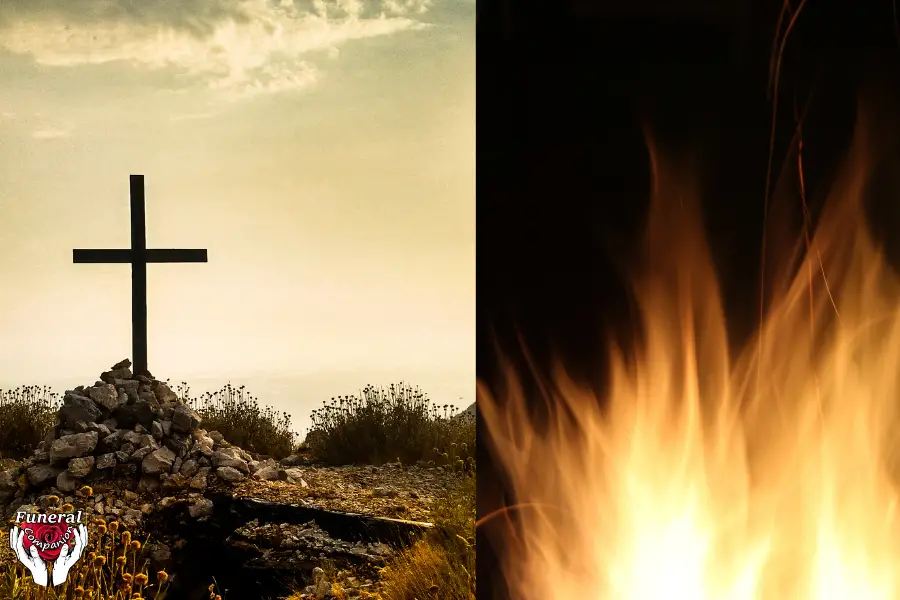
Listed below are some of the advantages of opting for cremation over a more traditional burial. These will affect you when planning your own funeral as well as acting on the behalf of another.
Easier to transport human remains
Firstly, the thing you need to know about cremation is that it makes an agent’s job (someone who deals with the deceased) a lot simpler. Most people don’t know this, but you can actually put someone in the mail.
Of course, this is only If they’ve been cremated, you can’t do that easily with a casket (but it is possible – read my article about it here). So cremation really simplifies the logistics of transporting the body of your loved one. This is particularly the case if you’re going to be going across state lines or international borders.
A case I heard about involved a gentleman who was not particularly affluent. In fact, there were very limited funds for his funeral. He was from South Carolina and had to be transported from Virginia down to South Carolina. And that cost a significant chunk of change. Just getting him a plane ticket (even though he was deceased) cost $1,200.
After getting him to South Carolina there were then all the other burial expenses on top of the transportation costs. In addition, it was a massively challenging scenario getting the body from the funeral home to the airport, and then at the other end, from the airport to another funeral home or straight to the cemetery.
In this situation, cremation would have been as simple as putting an urn into carry-on luggage and then carrying it to a final resting place.
Save money on caskets
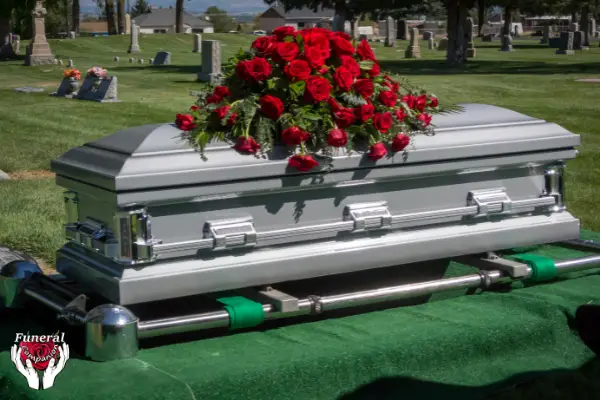
Another aspect of cremation is that you don’t have to spend as much on caskets.
Firstly, it’s a little-known fact that you can actually rent a casket for the purposes of holding a viewing. This means you can still have a very ornate and beautiful casket for show, which is then swapped out for a much simpler one, which is burned with the body. You can also opt for having a casketless cremation too.
This means that the real advantage of cremation is that a casket can cost you as little as $600 to $1000 if you forego a lot of the extras that may be pressed on you by a funeral home.
That is contrasted with a burial where the casket is going to cost anywhere from $1,500 to say $6,000. In fact, there’s no real ceiling on how much a casket can cost you. There’s a pop culture reference in the series Ozarks where a lady you died wanted a $25,000 casket.
You can make it as expensive as you want it to be, but in general, a burial is going to cost a lot more if you’re going to be buried versus cremated.
If you really want to save money on a casket, I recommend buying it from a third-party vendor and you can have the best of both worlds, quality, and cost. See more details here.
Save money on burial of cremains
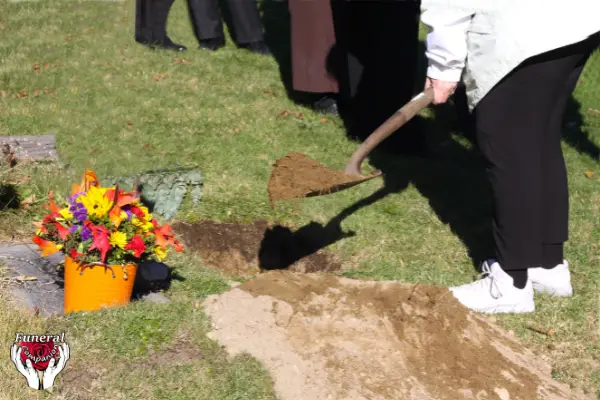
Another key advantage to cremation is that when you opt to bury the cremated remains, it takes up a lot less space than a regular grave. Each cemetery will be different and offer different amenities for burying cremains.
You can be put in a columbarium, which is a wall of cremated remains, or they may have crematory gardens, where you are interred in the ground. And this is a lot cheaper than a burial plot because you are charged for the opening and closing costs. In addition, there’s the expensive casket, transportation costs, the ceremony, et cetera.
You will find that regular burial costs are in the $5,000 to $7,000 range for most burials. Cremation can be a lot cheaper than that. You can cremate a body for less than $2,000 in some cases and certainly even cheaper depending on how you manage things and what you negotiate and where you live. One very cheap option is called direct cremation.
Rest in peace in a special location
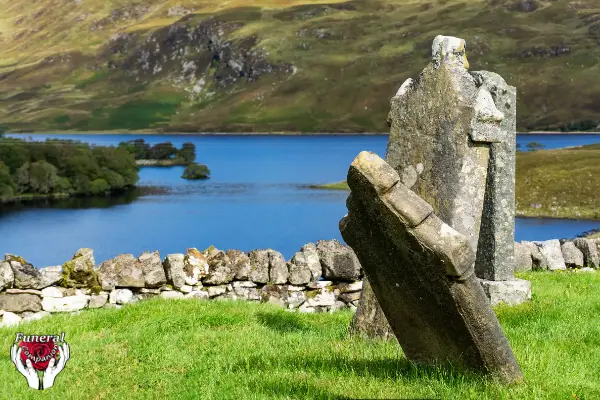
Cremation gives you that option to be scattered on your favorite golf course or in the ocean or in a river or on a farm. The possibilities are endless really. If you can imagine it, you have your ashes shattered there.
Whereas there are laws against being buried in many places, such as on public land and in the open, there are far fewer regulations of where ashes are lain to rest.
However, here are a couple of considerations for scattering ashes. Number one and most important, if you’re going to ask to be scattered at sea, or if you’re carrying out someone’s wishes and you’re going to do it on a cruise ship, make sure you tell the cruise ship ahead of time.
They do not like surprise scatterings off the side of the deck because it tends to blow back or blow on to unexpected places. I mean, if you tell them ahead of. Nine times out of 10, they’re going to give you a designated place to scatter you off the stern of the ship. It’ll be a lot cleaner. Often they’ll even provide a chaplain.
Sometimes it’s gonna be a lot better, and you don’t, you’re not going to be all furtively secretive about carrying out your “burial” at sea. It’s much more dignified to tell them ahead of time and get scattered at sea off the stern of a cruise ship.
Keep scattering requests reasonable
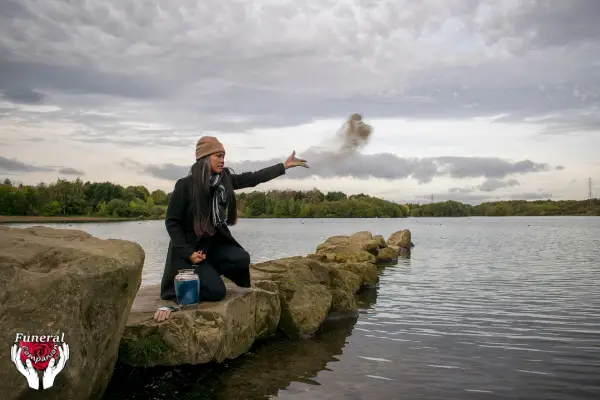
So then another thing to keep in mind, if you’re going to request the scattering of your ashes, is where it is requested.
Sometimes people want to be scattered in a bunch of different places. For example, a little bit at the family farm in Maine a little bit, in Florida, a little bit in Colorado. That’s going to be really time-consuming and expensive for your agents (or for you as the agent) and you’re not around to enforce your wishes.
With requests like these, agents more than likely just ignore the deceased wishes. So keep this in mind and make it a reasonable request for scattering your ashes. Multiple places starts to get logistically challenging.
Choosing Burial
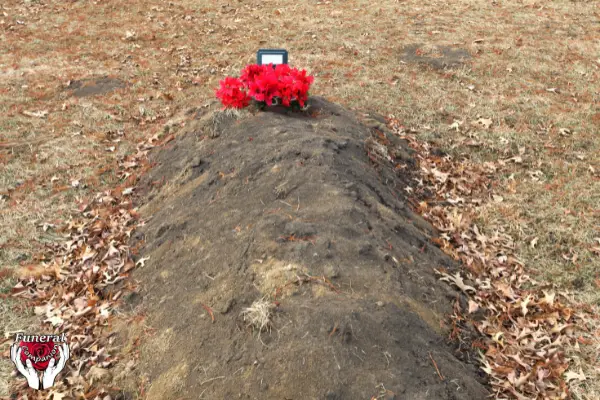
So, that’s some considerations for cremation. Let’s now talk a little bit about burial. Typically I see people specifically request burial when they have religious reasons to do so. Or maybe they had an experience where they really wanted to say goodbye to their loved one who passed away unexpectedly, and so they do transport a body vast distances.
Here are some important things to consider when opting for a burial
Choosing a casket
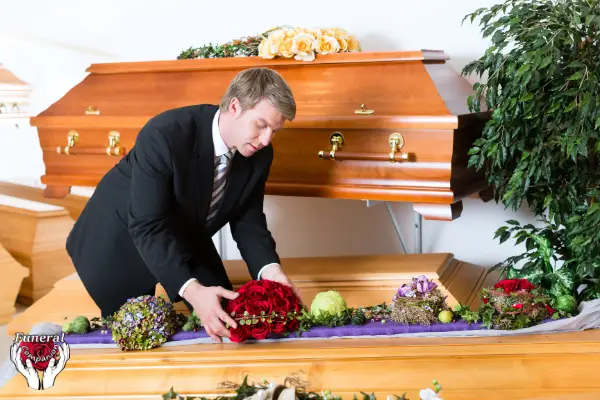
Although it is possible to be buried without a conventional coffin or casket, most burials take place with them. Caskets are probably one of the biggest individual costs for any funeral and most people pay thousands of dollars for them.
When choosing a casket it’s important to remember that funeral homes have incentives to have you buy the most expensive model. Being aware of the fact that cheaper models are just as effective will help you save thousands.
The first thing to do is to ask to see an entire list of caskets for sale. If this isn’t affordable enough for you, then you can always purchase your casket online and have the funeral home work with it when it arrives. By law, they have to do this. I really recommend working with websites such as Titan caskets or Trusted caskets. See my article here for why I recommend them.
Organizing an open casket
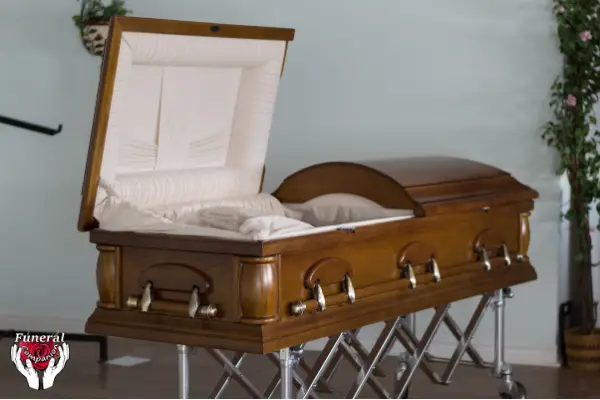
In some communities, having an open-casket funeral is very important. However, this comes with a higher price tag usually and a lot more behind-the-scenes work to make it happen.
Keep in mind that if you’re going to be buried and especially for the open casket you’re going to have to consider embalming. This is when they inject a body full of chemicals, and it can be considered undignified to have that happen to you.
Embalming is one method to preserve the body, and it can be refused. However, when you need to see the body, you either organize a swift funeral or rely on embalming.
So just make sure you know, what you’re getting into. If that doesn’t bother you, that’s fine. Another consideration to keep in mind is the availability of space at the cemetery where you want to be buried.
Choosing a burial plot
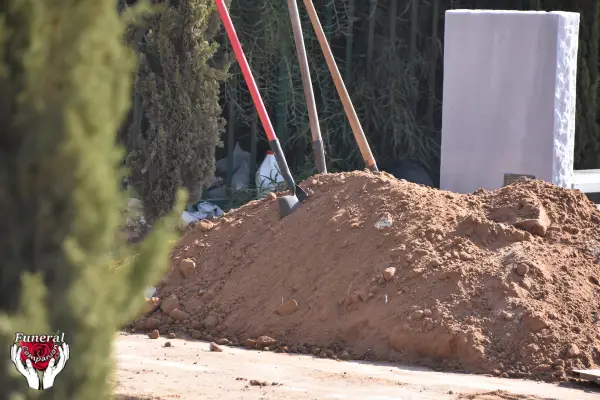
So if you have a family burial plot somewhere, you’re going to want to ensure that if you’re asking to be buried there, there’s room. It would be a terrible shame for you to have your final wish dashed by a simple logistical issue
To overcome this you can make pre-made burial contracts with cemeteries where you pay them upfront and, lock in your plot of land ahead of time. This can actually be cost-effective as prices do go up over time, and as we’ve discussed, you can always be transported to the grave in the future from across the country. It’s also possible to sell a grave plot, which can often come with a tidy little profit.
If you don’t like the idea of being buried in a cemetery with a lot of strangers, there are several other options to explore.
For instance, it’s possible to be buried on privately owned land in many circumstances. We’ve often seen this in the movies where a couple is buried under the tree they fell in love under, or on a hill overlooking a beautiful scene. If this appeals to you, then you can find out more in this article I wrote here.
Another option is to forgo the traditional funeral altogether and opt for a more natural burial. These green burials take many different forms, from being buried without a casket to being buried in a pod that will feed and grow a tree. For more information about green burials, feel free to read my article on this topic.
Cremation vs Burial: The Stats

What are most Americans choosing to do when it comes to cremation or burial? According to the Cremation Association of North America, the rate has grown from 48.6% in 2015, and it was expected to rise to 54.3% by 2020. A recent study by Harris poll, which was commissioned by the Funeral and Memorial Information Council reported that 65% of Americans were definitely or likely to choose being cremated.
These statistics indicate that at this time, the decision to be cremated versus buried is close to half and half, but appeared to be leaning towards the latter. So let’s compare the costs to each other.
People choose cremation because they perceive it to be cheaper than burial while this is mostly true, extra options can frequently increase the total cost of cremation for as much and sometimes even more than basic burial.
So let’s break down the approximate costs associated with each one, beginning with the basic costs and then with the added options that may be offered.
The fee for basic burial services is:
| Transportation of the body | $2,000 |
| Preparation of the body | $300 |
| Embalming | $200 |
| Transportation of flowers & belongings | $700 |
| Viewing & Funeral (staff & venue) | $130 |
| a hearse | $900 |
| Memorial print packages | $300 |
| Grave plot | $1,000 |
| Burial vault | $1.300 |
| Grave Opening & closing fees | $1,200 |
| Casket | $1,000 – $15,000 |
| Headstone | $1,500 |
A cremation requires almost none of these options and can be reduced even more by opting for a casket rental for perhaps a thousand dollars and an urn for maybe $250 and cremation for a few hundred dollars.
Direct cremation

But of course, you can skip even that. If cost is really an issue, if the previous costs are unaffordable, there is another cheap form of cremation. Here’s a breakdown of what that includes:
First, the body can be cremated immediately after death (or within 72 hours) and you can engage the services of a crematorium, bypassing the expenses of a funeral home.
Next, the body can be cremated in a simple cardboard container. If no one is going to see the casket, why pay thousands just to have it burned.
Third, as no Memorial services has to be held in an expensive venue, it can be done at your home if you still want one.
Forth, no embalming or other preparations of the body are necessary because there is no service or wake and no one will view the body.
An added step, which probably won’t be for everyone, is to transport the body from the hospital or place of death to the crematorium. So how do you deal directly with a crematorium directly? In most areas, you can transport the body to the crematorium and it only requires simple documents.
For most states, it’s just a death certificate and transit permits. However, in some states, you will have to hire a funeral director for these services by law. Therefore you should look into your state’s requirements in advance.
So what are the costs of a direct cremation? It can be as low as $700 and usually no higher than around $2,000, depending on what is mandatory in your state. And also with who you do business.
If you must use the services of a funeral director, some charge much more than others for the same service or will attempt to sell you unnecessary options. For instance, in New York City, the minimum price for cremation is $550 but can go all the way to $10,200, therefore be sure to look around and make comparisons.
Water cremation (Alkaline Hydrolysis)
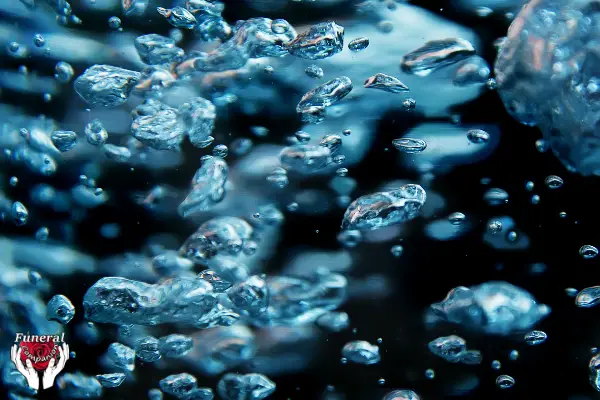
Another option that will soon be much more commonplace is known as water cremation. This is the process of Alkaline Hydrolysis to break down a body and dispose of it.
The process involves a machine, which works a lot like a household appliance, using water sodium, hydroxide, and potassium, hydraulic. The remains are placed in the machine and the water cycles around the deceased for about 12 hours.
At the end of that 12-hour cycle, the automation takes the water out through the wastewater treatment system and the tray is pulled back out again.
When the body is removed after its 12-hour treatment, what’s leftover is almost exactly the same as what’s left after a traditional flame cremation. The big difference is that this process is considered a green cremation, as it’s a lot more environmentally friendly.
Dangerous emissions are not being released into the air. The waste from this new method goes through the pipes that lead out of the building much like the sewer pipes in our homes. However, in this case, the water goes to a wastewater treatment system.
Although this is obviously a new and greener variation on cremation, some camps are dead against it. Facing similar opposition as regular cremation did in some religious communities before. Nevertheless, it is another option you can research.
What does the Bible say about cremation?
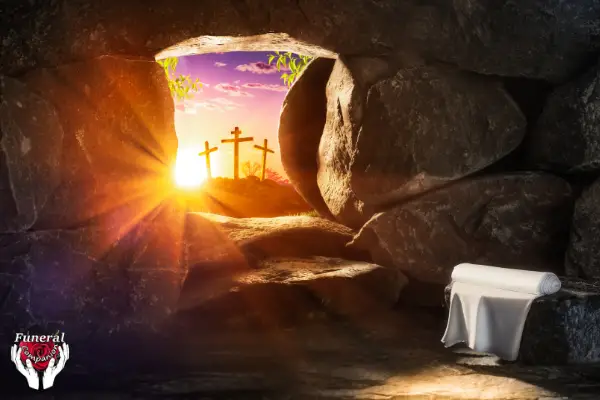
When a person dies, what’s the right thing to do with the body? Classically Christians have buried the body and given the body a Christian burial. However, as we’ve seen in this article, a lot of people are looking towards cremation nowadays as a kind of an easier way out, more economical. And let me give you my view on this since the Bible does not weigh in one way or another directly.
I will briefly go into this here, but for a more in-depth article, I recommend you read this one I wrote as well.
When a body is consumed after it dies, it’s a process called oxidation. This happens to all organic remains. You can bury the body and it’s slow oxidation. You could burn it and it’s fast oxidation, but it all amounts to the same thing over time, pretty much everything disappears.
Okay. So the question is, morally, does it matter? And I don’t think it really does, but I want to toss in another thought.
There was a reason why, traditionally, Christians have been given a particular kind of burial. The reason that they have been given that kind of burial is that they believe that a human being is made of two different things; an immaterial self and a material cell, a soul and a body.
This soul bears the image of God, not the body. And so was united with the body for its lifetime, the natural lifetime of that individual. And when that person dies, they go away but the body is still in a certain sense ennobled by the soul which inhabited it.
And so by way of showing respect for the body, which will eventually be reunited in its more natural state with the soul at the resurrection, Christians have had a ceremony and a burial that they thought brought in a bit of dignity.
The Bible does not give any specific teachings about cremation, but there are occurrences in the Old Testament of people being burned to death.
Then Josiah looked around, and when he saw the tombs that were there on the hillside, he had the bones removed from them and burned on the altar to defile it, in accordance with the word of the Lord proclaimed by the man of God who foretold these things.
17 The king asked, “What is that tombstone I see?”
The people of the city said, “It marks the tomb of the man of God who came from Judah and pronounced against the altar of Bethel the very things you have done to it.”
18 “Leave it alone,” he said. “Don’t let anyone disturb his bones.” So they spared his bones and those of the prophet who had come from Samaria.
19 Just as he had done at Bethel, Josiah removed all the shrines at the high places that the kings of Israel had built in the towns of Samaria and that had aroused the Lord’s anger. 20 Josiah slaughtered all the priests of those high places on the altars and burned human bones on them. Then he went back to Jerusalem.
2 Kings 23:16-20
It is interesting to note that in Second Kings chapter 23, verses 16 through 20, burning human bones on an altar desecrated it but at the same time with the old Testament law, no commands said a deceased human body should not be burned, nor does it attach any curse or judgment on someone who is cremated.
Cremation was practiced in biblical times, but it was not commonly practiced by Israelites or by those depicted in the New Testament. For the cultures of Bible times, burial in a tomb cave or in the ground was the common way to dispose of a human body.
The fact that a body has been cremated does not make it any more difficult for God to resurrect that body. The bodies of Christians who died a thousand years ago have been by now completely turned into dust. This will no way prevent God from being able to resurrect their bodies. He created them in the first place.



